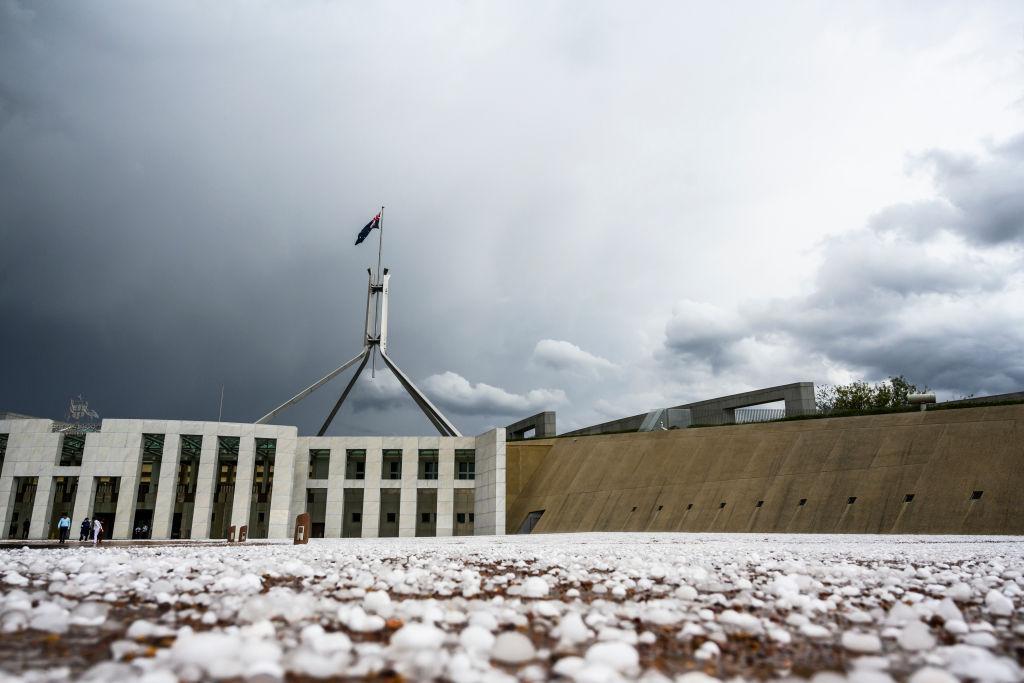Valuing messiness in Australia–China relations
Posted By Andrew Forrest on February 22, 2022 @ 14:30

In the visual-design world, the rule of thirds is an effective formula for organising compositional layouts. It’s effective because the human eye is naturally drawn to intersection points that occur when an image is divided into thirds.
It makes looking at things easier.
In the China-policy world, for decades the notion of a neat three-way division between economic, security and political activity informed most countries’ China choices. Dividing China policy into three distinct categories became a force of habit everywhere because of its comprehensibility and perceived policy flexibility.
It was an illusion.
In Australia’s case, compartmentalising the bilateral relationship in this way was ultimately harmful because it discouraged integrated China-policy development and slowly pushed politicians and officials into opposing camps.
Canberra’s old tendency to focus on gains in one area of the bilateral relationship, usually economics and trade, to compensate for or distract from problems in another was never going to form the basis of an effective China strategy because it played to one of China’s strengths—its ability to frame situations in ways that discourage internal consensus on critical issues.
But that was then, and this is now.
The sustained pattern of disturbing Chinese behaviour at home and abroad over the past several years has forced a change of approach. There is now broad recognition in Canberra and most regional capitals that economic, security and political activities almost always spill into each other and that siloed approaches to China-policy development are dangerous and unworkable.
While this shift to a more integrated approach to China policy in Australia is psychologically deep, it is not fully institutionalised and is still quite new, so it would be wrong to assume that it is permanent.
It can be undone.
The federal election, expected in May, will be a litmus test. Any partisan division on China and China-related issues will create an expectation in Beijing of a return to the highly compartmentalised and risk-averse approach to managing Australia–China relations in Canberra. China’s leaders would be hoping that a new Labor government would do anything to establish lines of communication with them again, or at least something akin to it that the Coalition would be unwilling to do.
For now, both sides of Australian politics seem to agree that lacking a commitment to consistency on China issues, particularly issues that threaten to undermine Australia’s sovereignty, is a luxury we can no longer afford, and that Australia’s core interests need to be protected in the current environment.
The differences seem to relate mainly to the methods we use to protect those interests, and the degree to which conversations and debates about how to resist China’s coercive behaviour should be held in public [1].
Despite this broad bipartisanship on China, China’s leaders would assume that a Labor government would need time to come to terms with lost confidence in its capacity to easily evade danger and risk in the bilateral relationship.
They would also know that a Labor government would comprise individuals whose only experience in dealing with China in government was back when we instinctively avoided doing or saying anything that could jeopardise our economic and trade ties. Too much has changed since the Gillard–Rudd years and watching from the sidelines is never the same as being out on the field.
In short, Beijing would be anticipating a window of opportunity to force a change of approach towards China before a new government gets comfortable feeling uncomfortable about the relationship.
Regardless of who wins the election, it is important for all future Australian leaders to expect a certain degree of messiness and disorder in Australia–China relations. That above all is going to be the key to holding our nerve over the long haul.
If we can’t do that, we risk reverting to a furniture-showroom-type approach to China policy in which the compartmentalised projection of neatness and order is more valued than the development of a genuinely substantive overall relationship.
We do not need and should not want that.
Effective China policy will always need elements of engagement and confrontation, as will our internal debates on what are likely to become truly difficult choices for the nation in years to come.
The Australia–China relationship should feel lived in and susceptible to changes of course, in both positive and negative directions. While uglier and more difficult to comprehend at times, choosing to think hard about how the component parts of the bilateral relationship work together demonstrates Australia’s optimism and resilience.
Article printed from The Strategist: https://aspistrategist.ru
URL to article: /valuing-messiness-in-australia-china-relations/
URLs in this post:
[1] public: https://www.news.com.au/finance/work/leaders/puzzling-scott-morrisons-china-spray-slammed-by-intelligence-experts/news-story/84fa9a055292486be177dd9288e9240a
Click here to print.